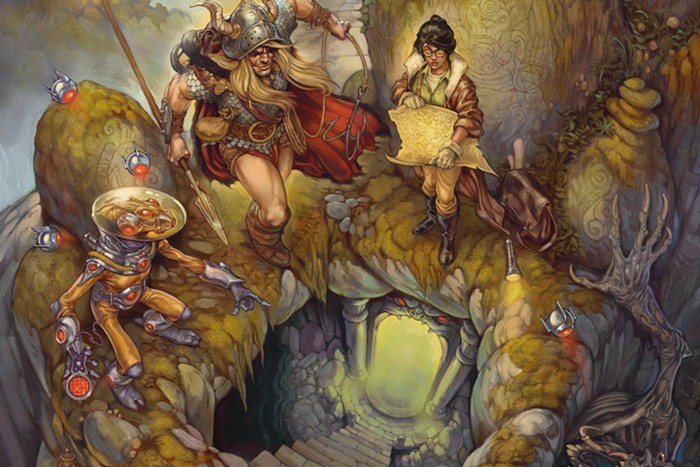For what it's worth, Seattle Post- Intelligencer book critic John Marshall's review of Orphans was pretty embarrassing too. "Reading Charles D'Ambrosio's new essay collection is akin to watching a baseball player work his way through the minors, trying to find his swing, and then finally settling into the majors as a full-fledged slugger," Marshall began. "They [sic] may be some mighty strikeouts with Charlie at the bat, but the guy can really power some homers." (Is Marshall trying to be illiterate?) I probably don't need to tell you that reading Orphans is not at all like watching baseball. Or that Marshall's don't-get-all-smart-on-me tone was really obnoxious (when he wrote that D'Ambrosio quotes "such intellectual heavies as Czeslaw Milosz, Joseph Brodsky, Alfred Camus, Nietzsche & friends," he could only have been using that ampersand to be dismissive).
As with Coolican in the Seattle Times, the P-I's Marshall basically liked Orphans, but in a safe, bored, patronizing way. Marshall called it "a strong step forward." Coolican described it as "by no means perfect" but a "relief" from, you know, illiteracy. Both reviewers mentioned that some of the essays in Orphans first appeared long ago in The Stranger, but neither got around to mentioning that mainstream journalism, and the Seattle Times in particular, gets trashed in the book. (Might that make a book reviewer for a mainstream newspaper feel vaguely hostile? It might.)
The reason I care about these reviews in the Times and the P-I--I don't think about either newspaper regularly--is that Orphans is a spectacular book that might not get much more attention. (Well, it got a positive review in Publisher's Weekly, but Orphans isn't going to be available in bookstores for several months, and then only in limited distribution. The only way to get a copy right now is to subscribe to the Clear Cut Press series, which you can do at www.clearcutpress.com.) Orphans is freakishly good, which might be why Coolican and Marshall seem slightly put off by it, slightly baffled. Orphans does for the Northwest what Joan Didion's essays did for California; it gives this place definition and legitimacy. Like Didion's, D'Ambrosio's essays are perspicacious, clean, and wrenching. They have the terrific gravity of great stories. They have life in them. They're heavy and fat and funny. They're good. They're hard to write about.



















